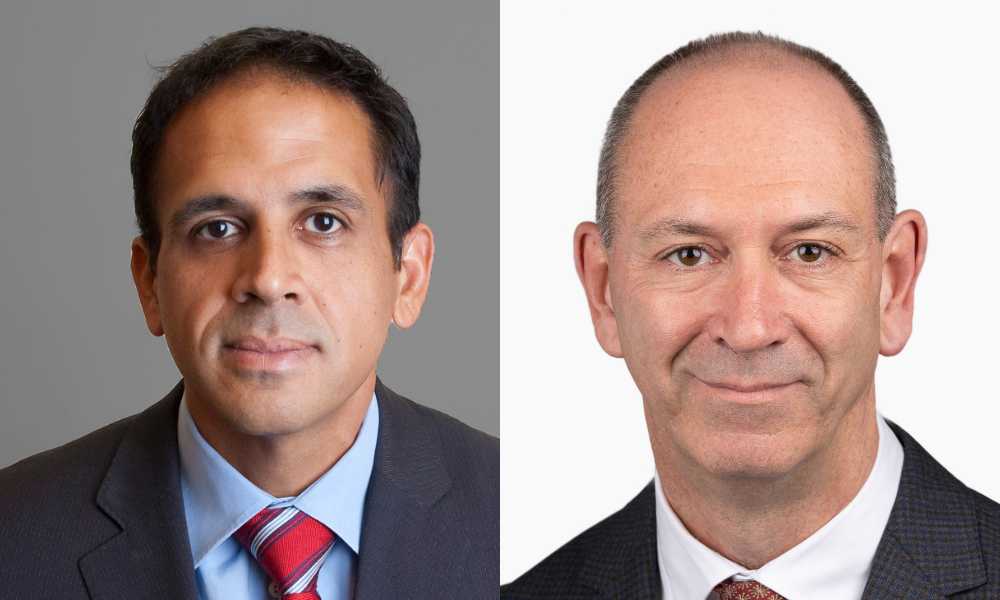MFS explains how the current market environment can provide economic growth for pensions

Experts are encouraging plan sponsors to take advantage of the current market environment – or risk losing out entirely.
As Soami Kohly asserts, the moment to de-risk is now for DB plans but it won’t last for much longer.
"If you're not de-risking now, you should never talk about it ever again in your pension committee meetings," said Kohly, portfolio manager at MFS Investment Management.
"Rates are going to come back down, so that's not going to be good for you. Equity markets may not continue to have the strength that they've had in the last couple of years so your funded status might deteriorate," he added.
Years of rising liabilities and volatile markets have made pension funding a challenge, but a rare alignment of higher interest rates and strong equity performance have given plan sponsors a window to lock in gains and reduce risk.
Consequently, equity markets have delivered strong returns, further strengthening pension plans’ financial standing. That rare combination has given sponsors a unique chance to shift assets into a more liability-matching strategy, reducing exposure to market risks.
Kohly highlighted another challenge pension plans face is the potential shortage of long-duration bonds to de-risk portfolios.
As more pension plans move to de-risk, demand for high-quality, long-duration bonds is increasing, which means supply isn’t keeping up.
"If you look at the amount of pension liabilities out there relative to the size of the bond market on the long part of the curve, there's way more liabilities out there than there are bonds," Kohly said.
“To get those bonds, you want to have make sure you can have them,” he added, pointing to the annuitization of pension risk transfers or through investment managers.
The supply and demand imbalance could make de-risking more expensive in the future, especially for plans who need to secure high-quality, long-duration assets to match liabilities.
And waiting to de-risk could mean not being able to secure enough assets to match liabilities effectively, making future risk management more expensive or even unattainable.
“De-risking needs to happen because historically, when clients were talking about de-risking, it was about getting enough duration to match liabilities. It's a little bit more nuanced this time, specifically around corporate bonds,” noted Kohly.
“It seems like there's a lot more pension plans who are looking at standalone corporate bond mandates as part of their de-risking strategy. Corporate plans are trying to understand the benefits of the long bonds versus concentration risk,” he added.
Meanwhile, for defined contribution (DC) plans, the industry is moving decisively toward target date funds (TDFs), which now dominate pension flows, said Andrew Kitchen, head of Canadian distribution at MFS, while noting approximately 85 per cent of flows in Canada are heading towards target date funds.
"If you've wound up your DB plan, what are we going to provide as a pension plan for the next generation of employees? That's the defined contribution space," Kitchen said.
DC plans are “more complicated” because employees often don’t have the sophistication to make investment decisions on their own.
Therein lies the appeal for TDFs as they automatically adjust their asset mix based on a plan member’s retirement date, making them an easy choice for participants who may not have the expertise to build a portfolio on their own.
Participants can also outsource the movement of assets to a fund manager who can guide them through to retirement.
“Target date funds are gaining a lot of ground and acceptance, both in the DC world, but also in the retail space as well,” noted Kitchen.
The attraction to TDFs can also be attributed to its “set-it-and-forget-it approach”, ensuring their investments shift appropriately over time, Kitchen explained.
“DC plans are the future of pensions, if you like,” he said.
Either way, pension funds will still need to tread carefully as Kohly asserted a potential economic slowdown, shifting central bank policies, and even global trade disruptions could upend the market landscape, pointing to the potential impact of US tariffs.
"If the 25 per cent tariffs were to happen, Canada is going to be in a recession. It's almost impossible not to be [in one]," he said, ultimately emphasizing that bonds are “where you want to be.”
“Canadian corporate bonds are priced relative to the world and very closely to US corporate bonds so it would be hard to see them dramatically underperforming if US corporate markets are still strong,” said Kohly.
“Canadian corporates’ balance sheets are very good right now so they can actually withstand some shocks.”



